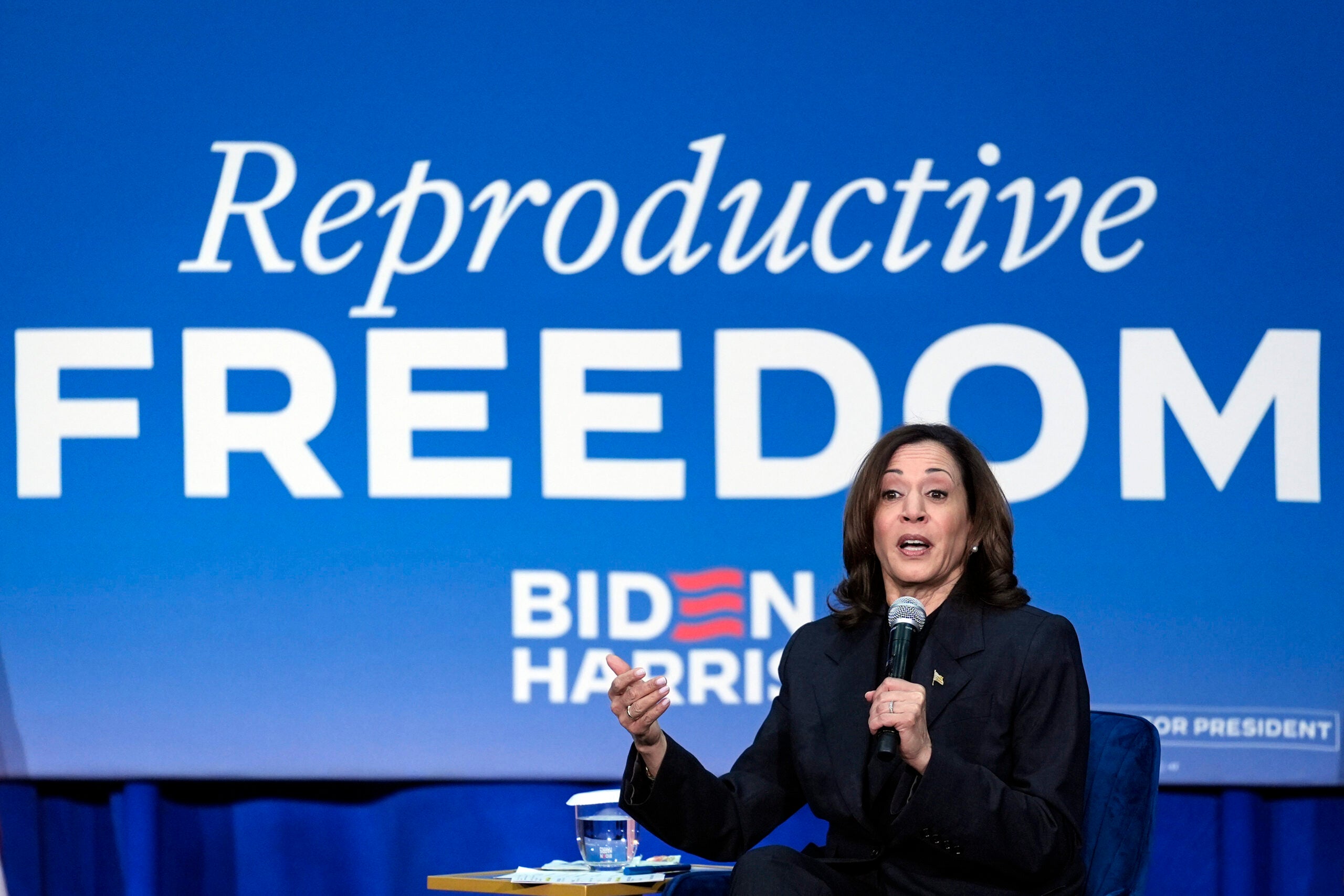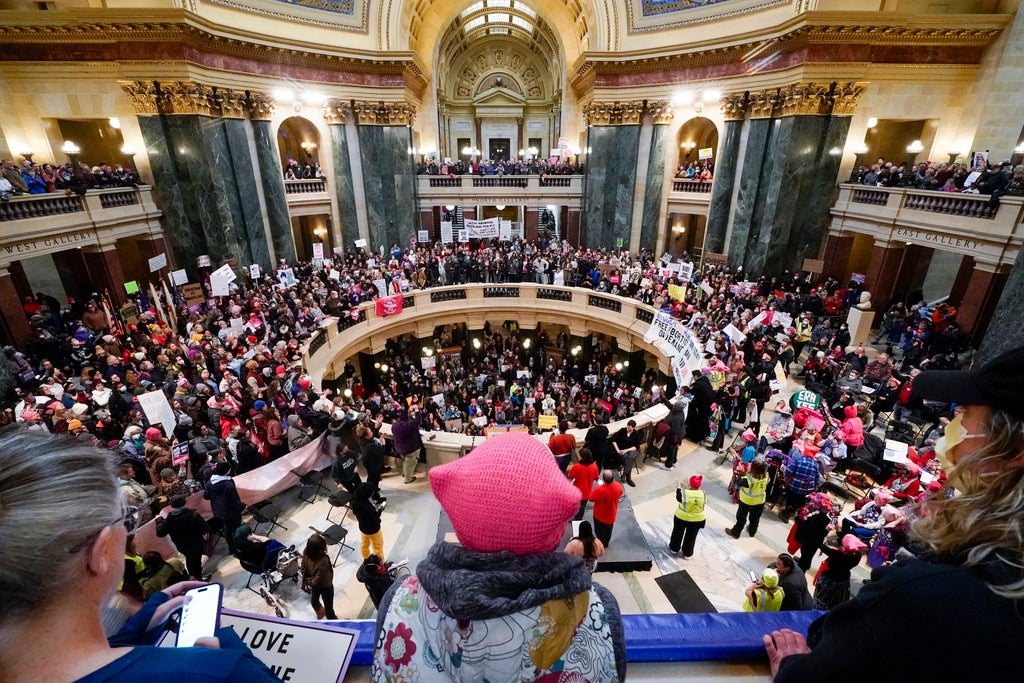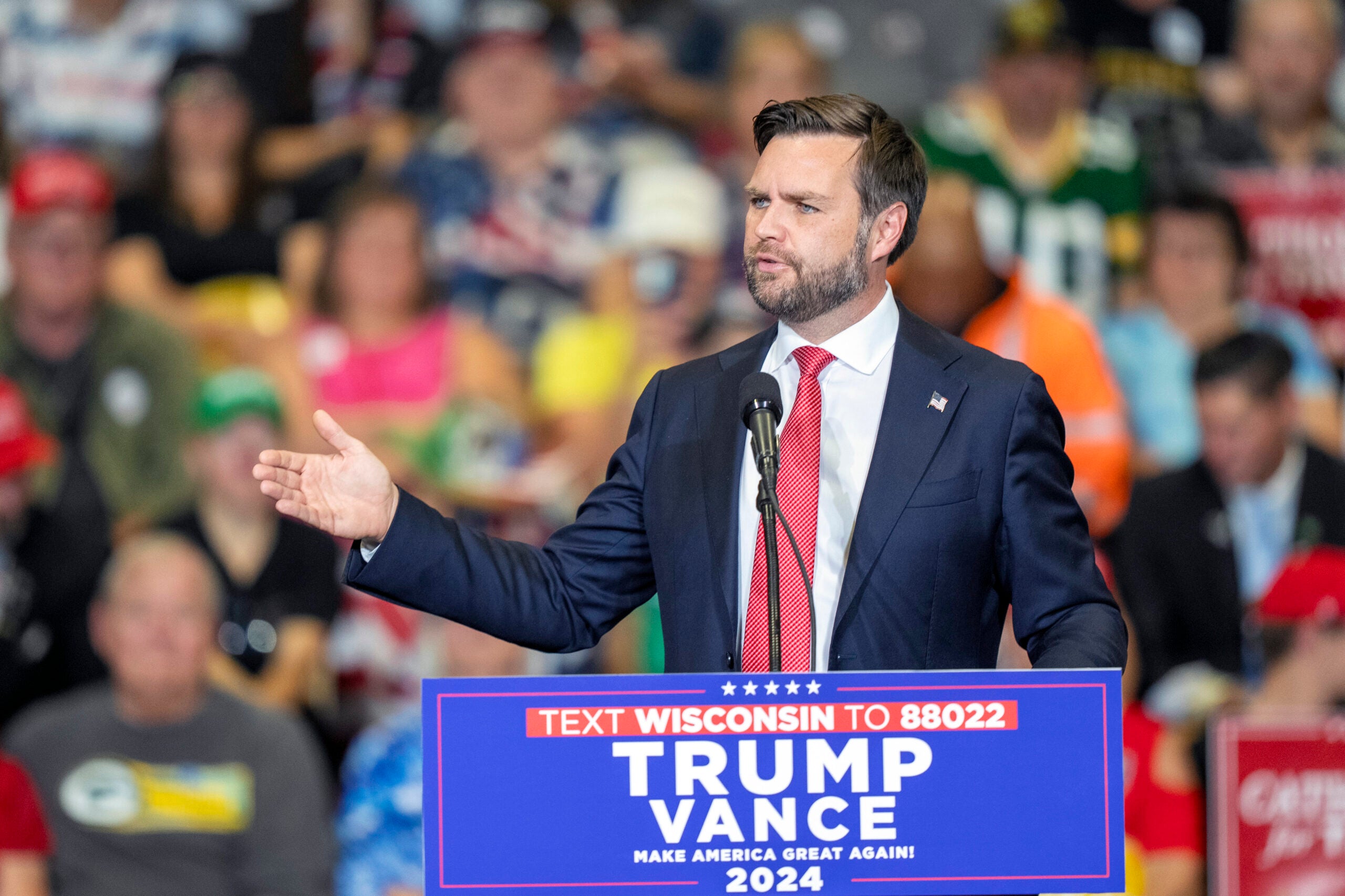More than 67 million people watched the first, and potentially only, presidential debate between Vice President Kamala Harris and former President Donald Trump. Around two dozen of them took it in at a lively Democratic watch party at Scooter’s Bar in downtown Eau Claire.
Before Trump and Harris walked on stage, Democrats in the crowd were posing for selfies with a cardboard cutout of Harris adorned with a jacket covered in rainbow-colored sequins. Others were busy writing voter outreach postcards destined for apartment buildings or rural farms. Someone brought customized bingo cards with phrases they expected to hear at the debate, like “Project 2025,” “Tariffs” and “Felon.”
But it was another issue — abortion rights — that got this crowd fired up, and you could hear it in the way they reacted to both candidates.

Stay informed on the latest news
Sign up for WPR’s email newsletter.
When Trump claimed that everyone loved seeing Roe v. Wade struck down, the crowd laughed. When he claimed Democrats want late-term abortions or even executions of babies after birth, they booed. And when Harris said Americans believe people’s freedom to make decisions about their own bodies should not be made by the government, the bar erupted in cheers.
Two years ago, the U.S. Supreme Court transformed the nation’s political landscape when it struck down Roe v. Wade and the federal abortion rights it had protected for five decades. The issue supercharged Democratic turnout. And while the legal landscape has changed in Wisconsin, Democrats are betting abortion rights can move voters to their side again.
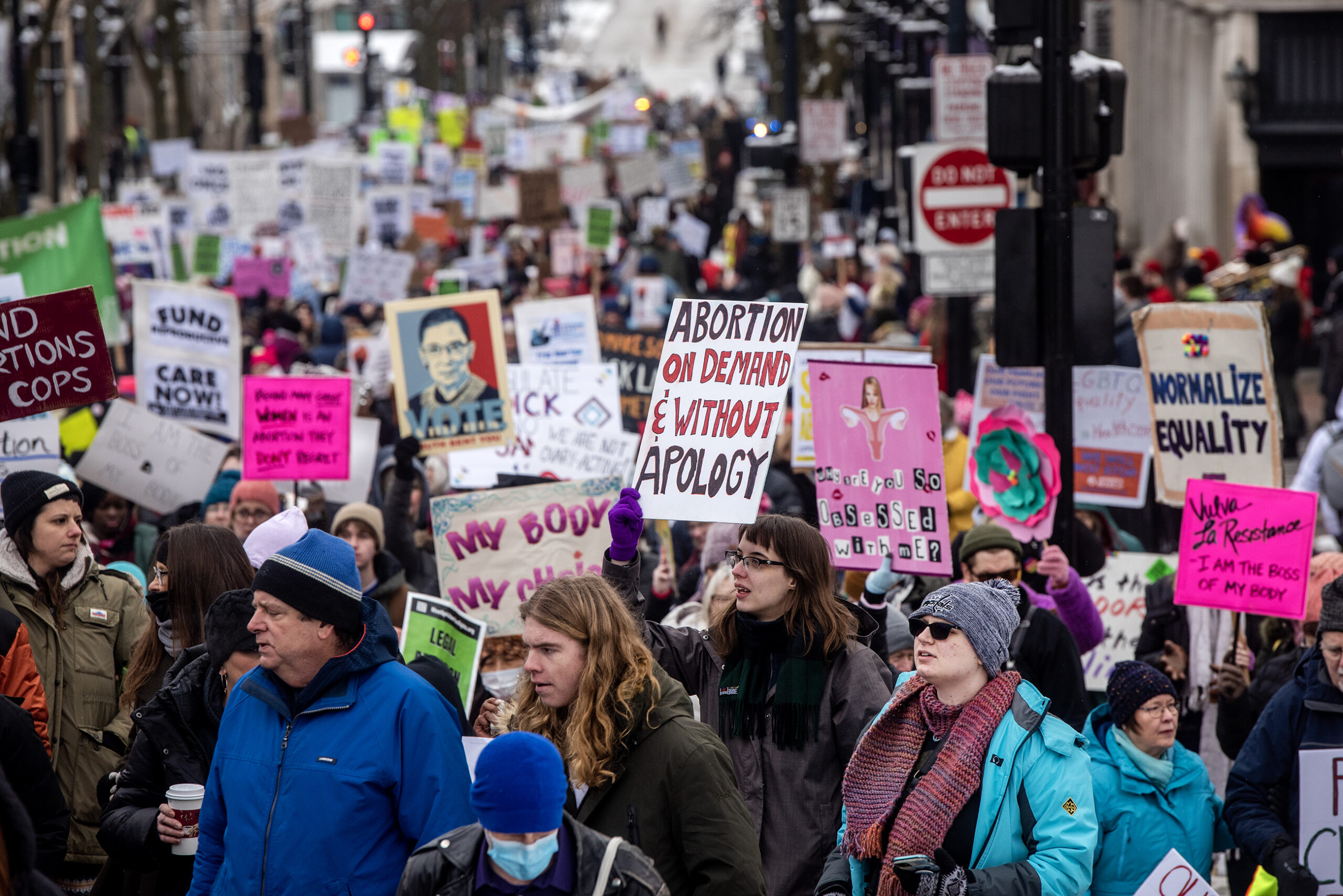
For Raina Phundheller, a retired teacher and Democratic voter from Altoona, the issue matters now as much as ever. After the debate, she said Harris’ answers were exactly what she wanted to hear.
“I think she was strong because I think there’s a myth that Democrats want to kill unborn babies, and that couldn’t be further from the truth,” said Phundheller.
Phundheller, who identifies as Catholic, said “nobody likes abortions,” but sometimes the procedure is necessary, like when a relative of hers had a tubal pregnancy.
“She was devastated,” said Phundheller. “She really wanted this baby, and the baby would not have survived. She would have died had they not immediately, you know, helped her in the hospital. But in a southern state, that would have been considered an abortion.”
Time may have passed since the U.S. Supreme Court issued its Dobbs v. Jackson Women’s Health decision that overturned Roe in June of 2022, but clearly, the issue is still getting attention. On the night of the presidential debate, Google reported that abortion was the most searched political term, across the nation and in Wisconsin.
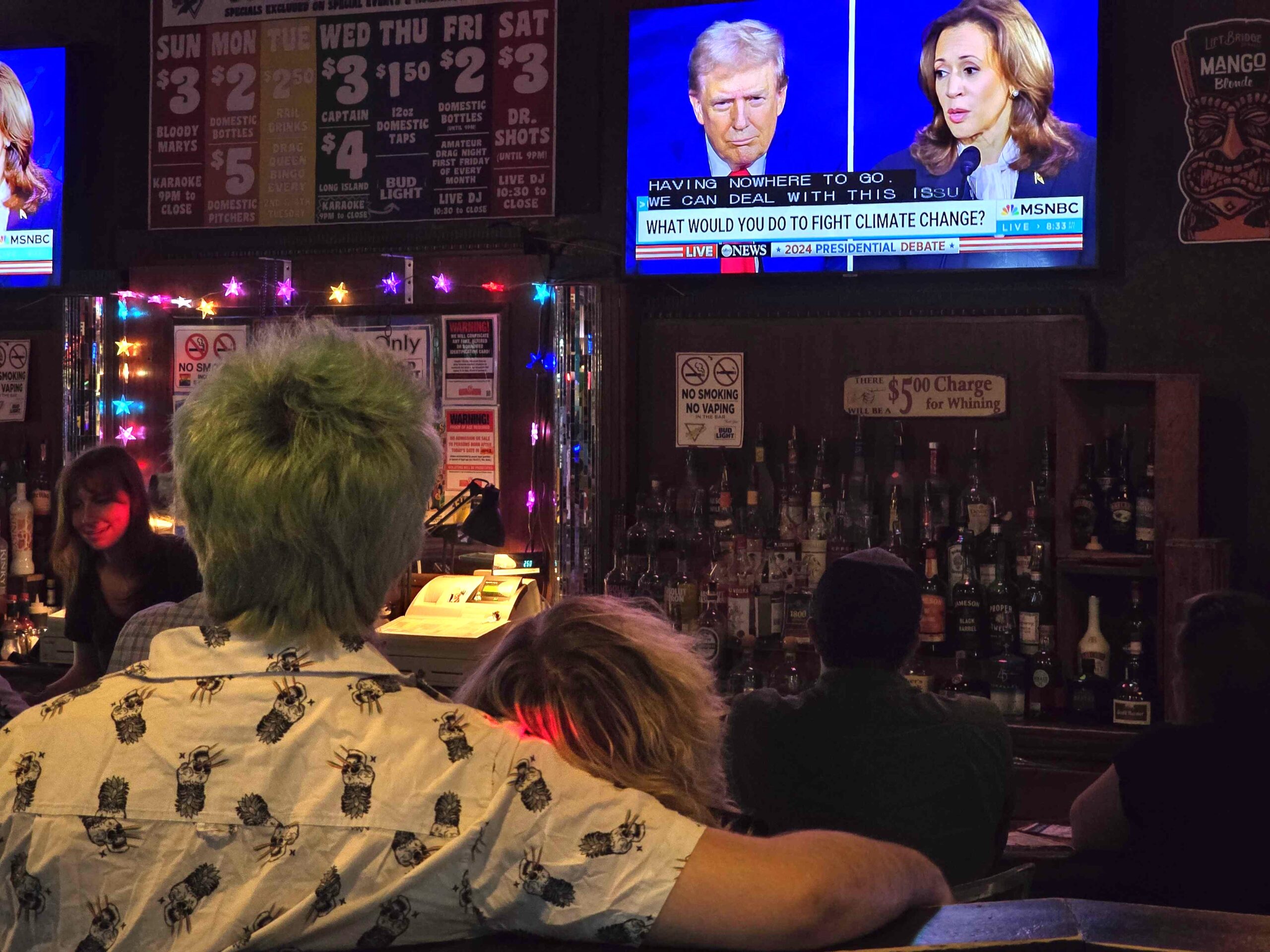
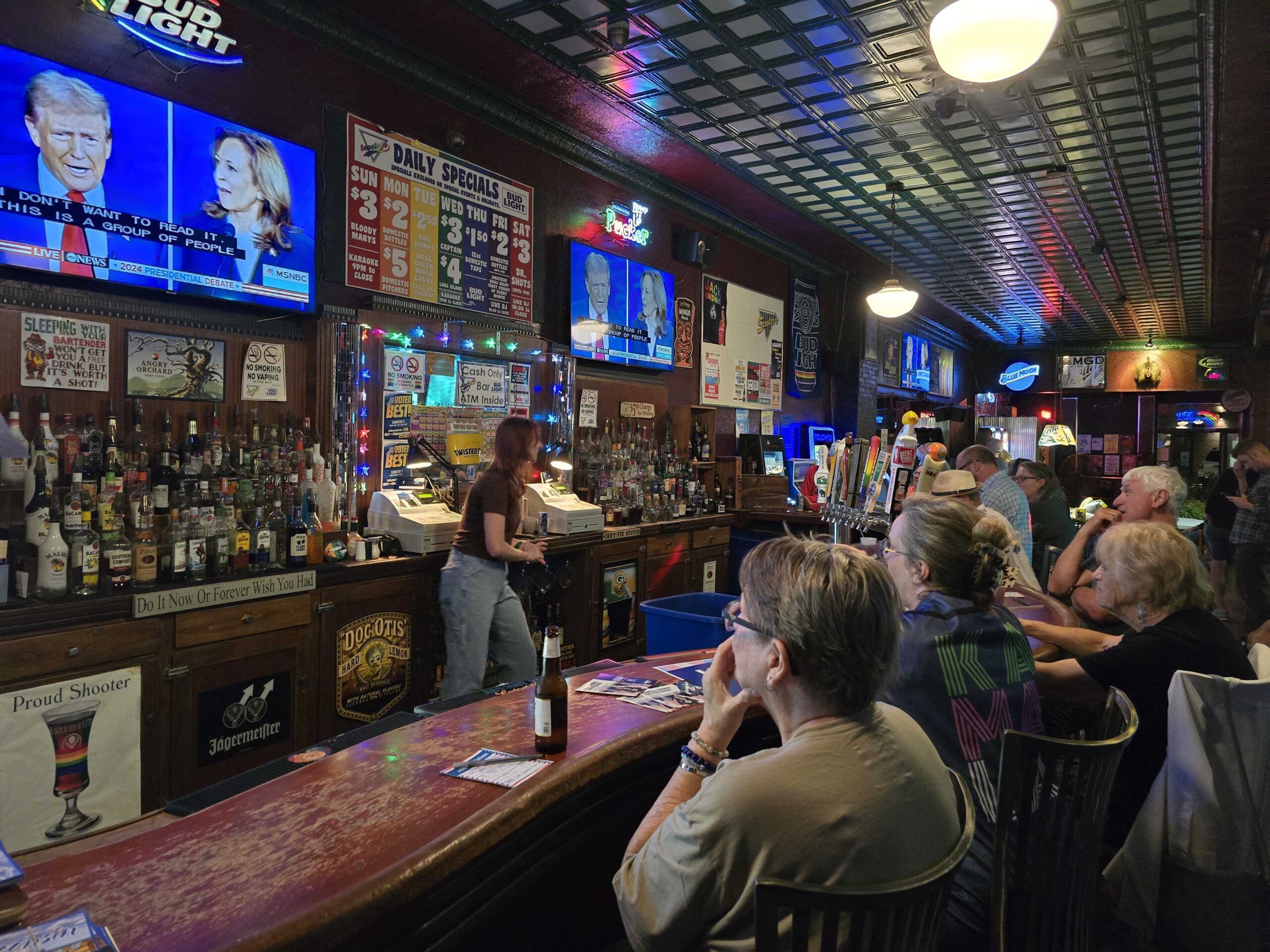
Dobbs caused political ‘ripple effect’ in Wisconsin
For 15 months after the U.S. Supreme Court issued its Dobbs decision, abortions ceased at Planned Parenthood clinics in Wisconsin over fears staff might be prosecuted under a pre-Civil War law still on the books.
“The legal status of abortion changed dramatically and quickly in this state,” said University of Wisconsin-La Crosse Political Science Professor Anthony Chergosky. “And that caused this ripple effect into elections and into public opinion and really into so many areas of Wisconsin politics.”
In 2022, Democratic Gov. Tony Evers made restoring abortion access in Wisconsin a centerpiece of his reelection campaign. His Republican challenger, Tim Michels, initially said he supported Wisconsin’s 19th Century law as is, but later changed his position and supported adding exceptions for victims of rape and incest. Evers defeated Michels by 3.4 percentage points.
In her 2023 campaign for the Wisconsin Supreme Court, then-Milwaukee County Circuit Court Judge Janet Protasiewicz was especially open about her views on abortion. Her opponent, then-Justice Dan Kelly, who was endorsed by the state’s anti-abortion groups, was not, and claimed he was running “to be the most boring member of the Supreme Court in the state’s history.” Protasiewicz trounced Kelly by 11 percentage points.
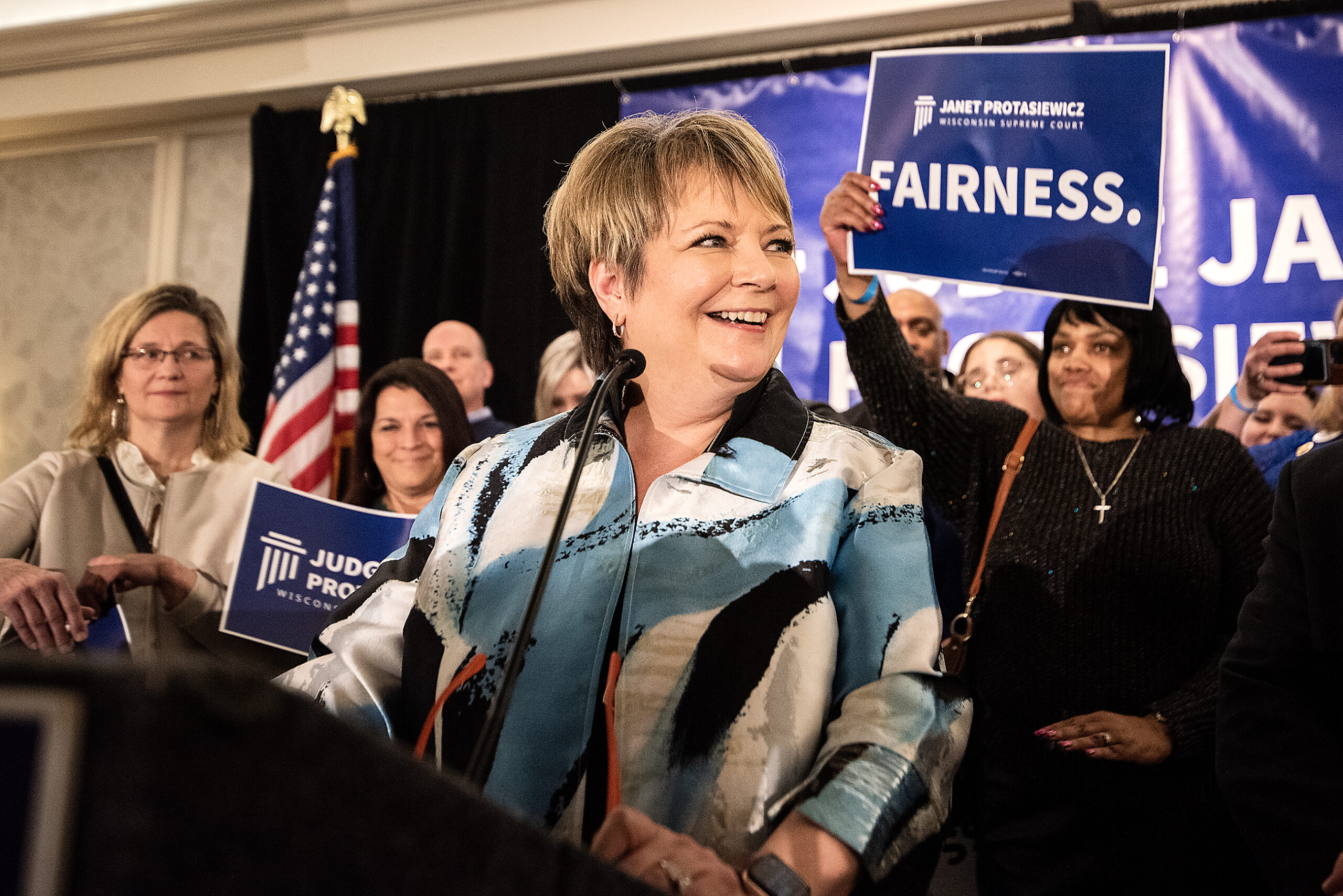
The results left Republicans searching for a common response to Democratic messaging on abortion. At the Wisconsin Republican Party’s annual state convention in May, U.S. Sen. Ron Johnson called on his party to set aside intra-party “squabbles” on abortion limits. He said he respects that many Republicans want to protect life at the moment of conception, which equates to a total ban on abortion procedures, but that’s not where public opinion lands.
“I know people don’t like what I’m saying,” Johnson told the GOP faithful. “Many people in this room do not like what I am saying. I’m just laying out the reality of the situation. Because in the end, we have to win elections.”
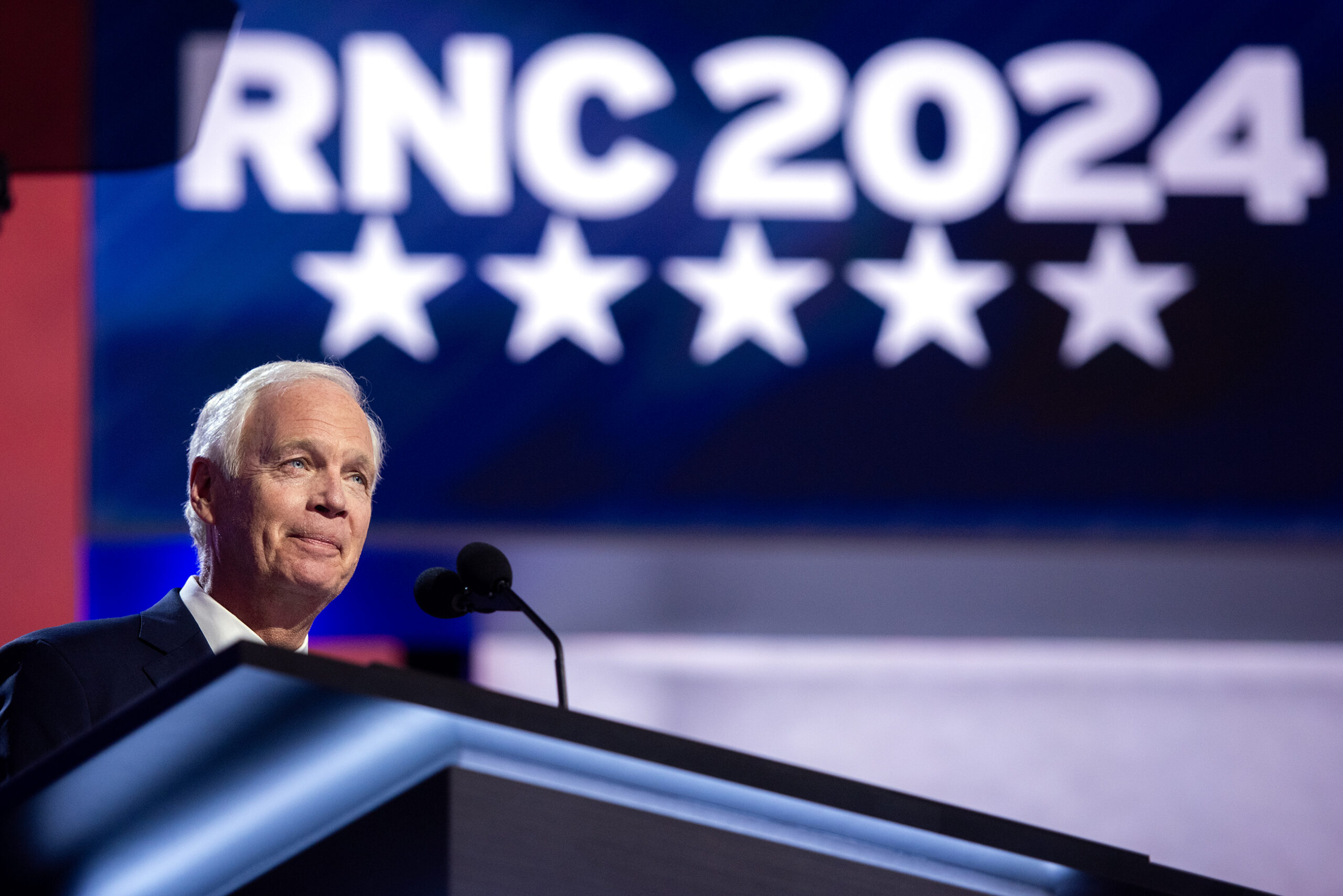
As the November election draws nearer, Chergosky said Republicans have tried to reframe the abortion debate by putting Democrats on the defensive, with questions about whether they would support any restrictions on late-term abortions.
“But that’s not the debate that is happening right now in American politics,” Chergosky said.
Instead, he said it’s about whether the Dobbs decision “was good or bad, if there should or should not be national restrictions on abortion and the extent to which there should be restrictions at the state level.”
“So, the Democrats are having the debate on their terms,” Chergosky said, “and that’s really problematic for the Republicans.”
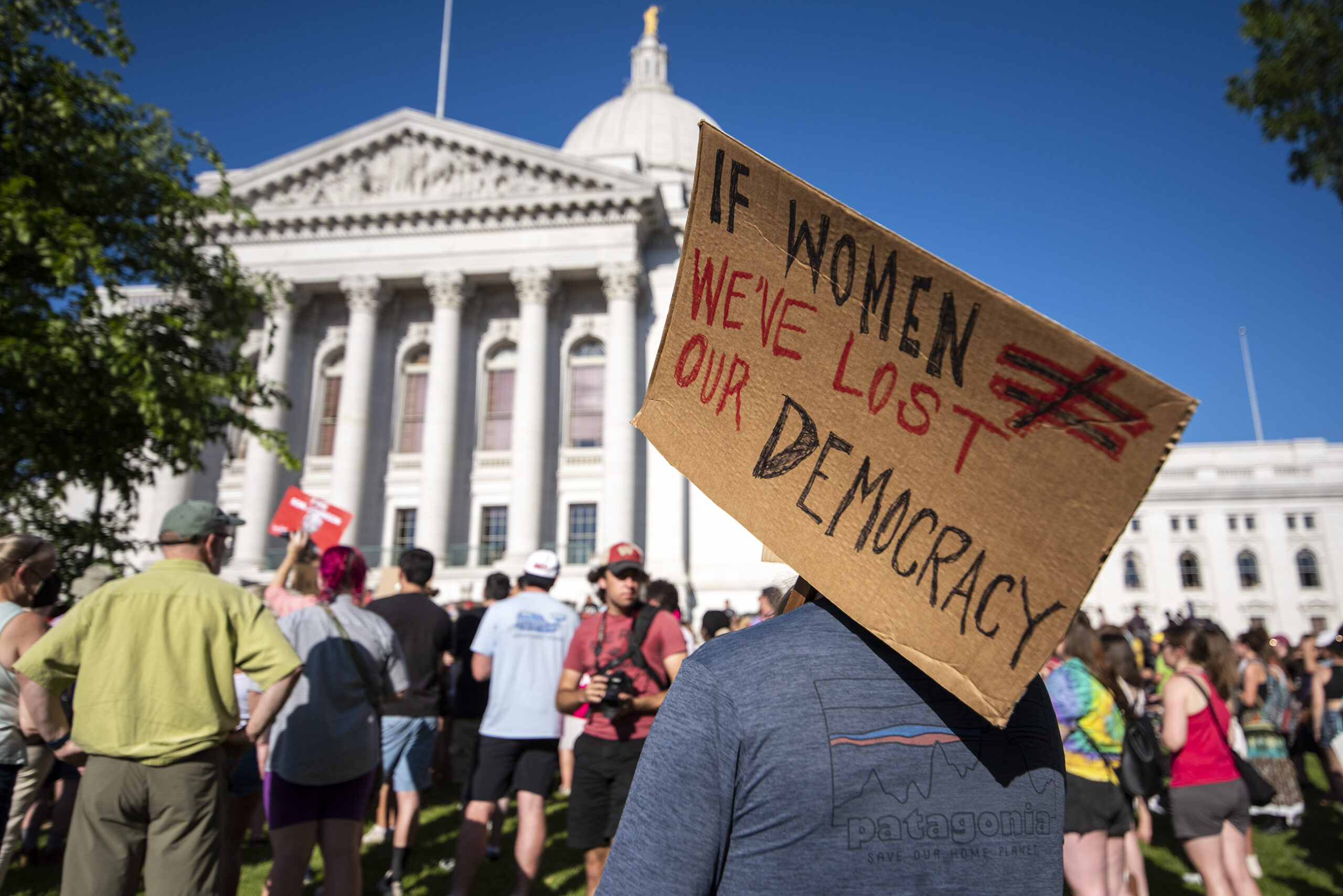
From ‘choice’ to ‘freedom’
Legally speaking, the abortion landscape has changed in Wisconsin. Planned Parenthood Clinics in Wisconsin began performing abortions again last year after a Dane County judge ruled the state’s pre-Civil War law doesn’t apply to consensual, medical procedures.
The language Democrats use to make their political case has also evolved. This was evident at the Democratic National Convention in Chicago, when the word “freedom” was everywhere — in the music, on the video screens and in the speeches.
As she watched speaker after speaker rail against Trump for his role in the overturning of Roe, Wisconsin delegate Yvonne Lumsden-Dill of Menomonee Falls said the 2022 Supreme Court ruling and women’s freedom is still a ‘big issue” among voters she’s spoken to while knocking doors for the party.
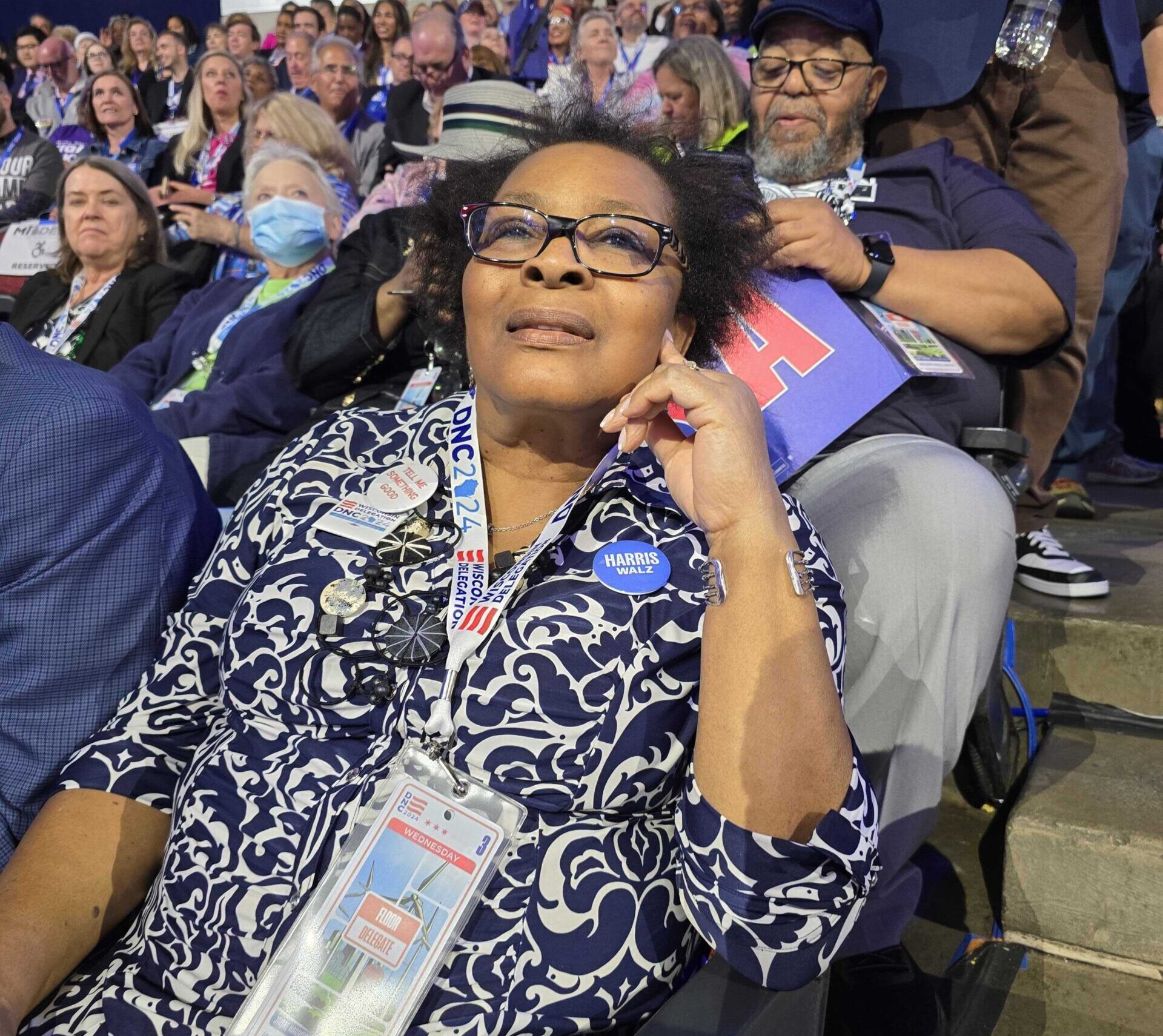
“I think it still carries the same weight as it did two years ago, and it’s going to be even more because we have an ambassador in Vice President Kamala Harris,” said Lumsden-Dill. “It’s going to carry more weight.”
As she walked between sessions at the DNC, Wisconsin delegate Deb Dassow, who chairs the Ozaukee County Democratic Party, said that’s no reason to give up the fight to restore women’s rights.
“We want this deal sealed,” said Dassow. “We don’t want it sitting out there floating to allow the Republican Legislature in Wisconsin to come back in and try to make some law that would make it worse for women, because we’re still on the other side of that lawsuit.”
Another Democratic delegate in the crowd that night, Wisconsin Assembly Minority Speaker Greta Neubauer of Racine, emphasized that abortion was only protected in Wisconsin because of a circuit court ruling, which could always change.
“We have no protections in state law,” Neubauer said. “We have no protections in the constitution. And so, when I talk to folks about this issue on the doors, they do understand that.”
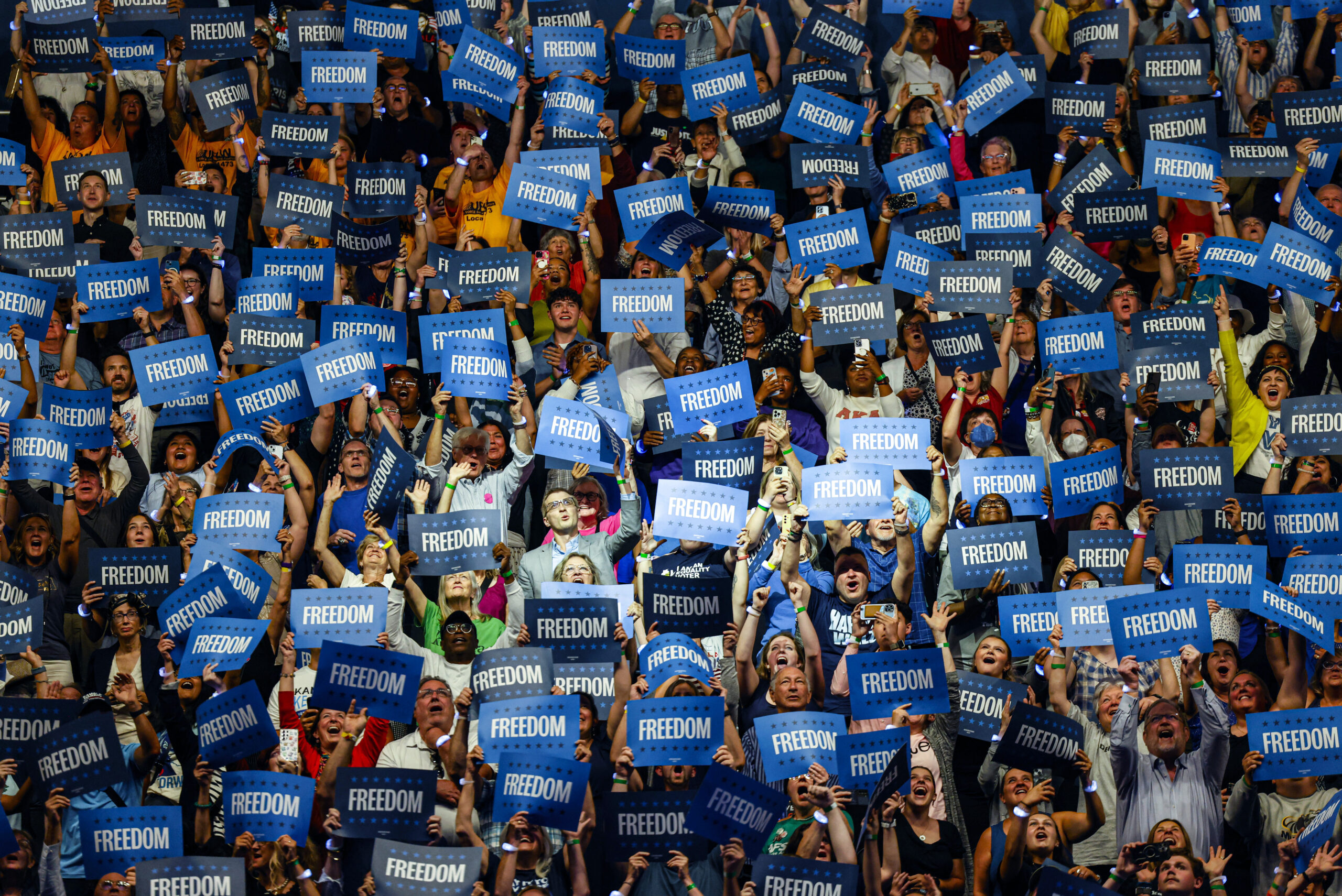
‘Like this bucket of cold water poured on the public consciousness’
During an interview with WPR, UW-Madison Professor of Sociology Emerita Myra Marx Ferree said when Roe fell, “it was like this bucket of cold water poured on the public consciousness” and Americans began seeing the abortion issue as far deeper than simply having a choice.
“It’s fundamental, it’s freedom, it’s rights. It’s respect for you as a human being. It’s justice,” said Marx Ferree. “Freedom is not about buying coats or shoes or taking a vacation or not taking a vacation. Freedom is about determining the course of your life.”
In a written statement to WPR, Gracie Skogman, legislative director for the anti-abortion group Wisconsin Right to Life, said her organization’s mission “to change hearts and minds to favor life, has not changed.”
“Abortion advocates used to call for ‘safe, legal, and rare,’ and now take the radical position of anytime, anywhere, for any reason and refer to it as ‘freedom,’ when in reality every abortion takes an innocent human life and leaves many women facing lifelong trauma,” said Skogman. “This shift in messaging reflects the radical positions of the Democratic Party, as they call for taxpayer funded abortion and late-term abortion, both out of step with the views of the majority of Americans.”
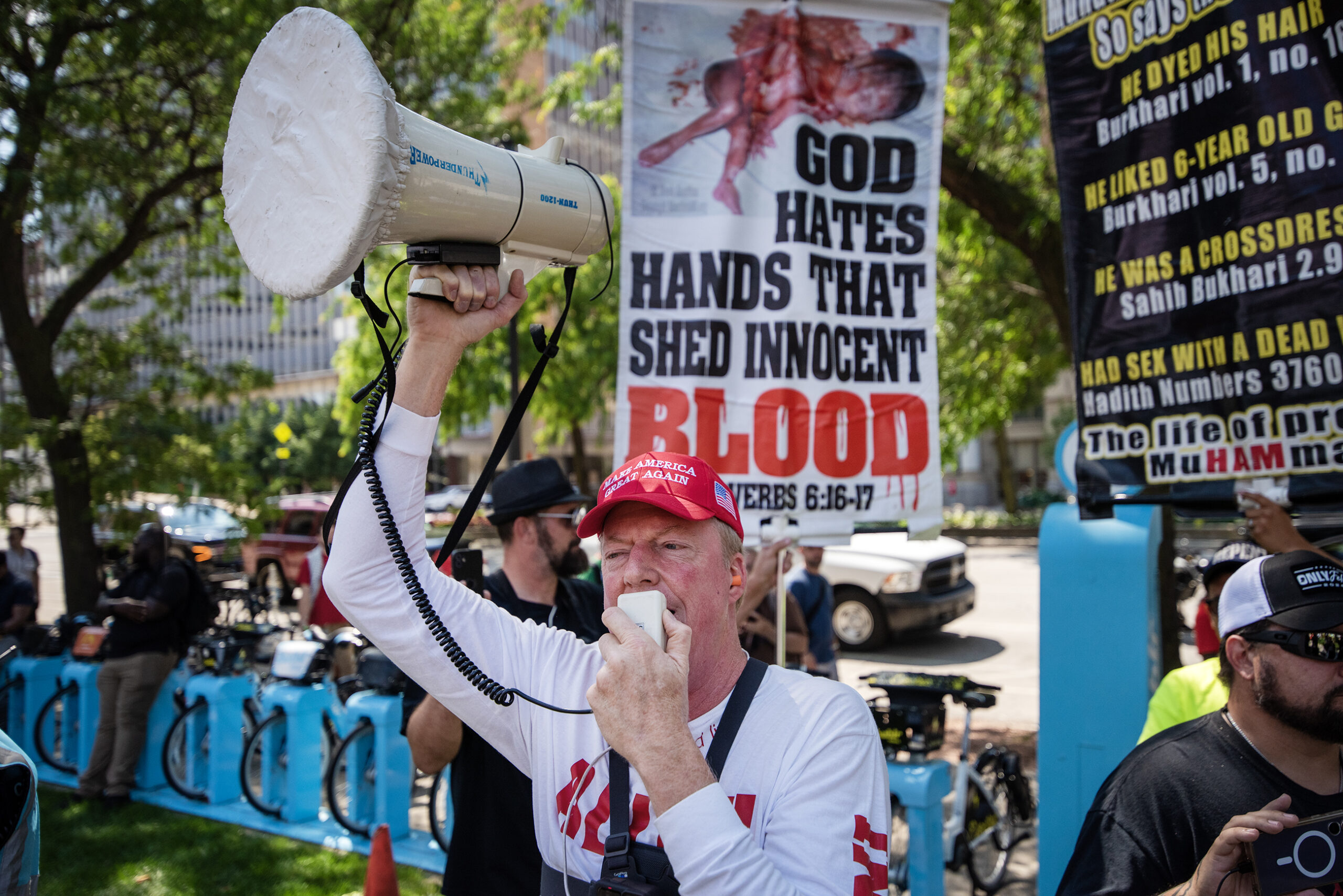
In Marquette University Law School polls this year, voters have listed the economy — not abortion — as the issue they’re most concerned with in this election. But Democratic Party of Wisconsin Chair Ben Wikler said that doesn’t tell the whole story.
Wikler said if those same voters are asked if politicians should be able to override what a woman does with her body, “they will answer emphatically, no.”
“I think it’s going to be a profoundly powerful force in the election this fall,” Wikler said. “Not just in cities, but in small towns and in rural areas with older voters who remember what it was like before Roe v. Wade, and with younger voters who are shocked that this freedom was taken away.”
That emphasis from Democrats can be seen in where the parties are spending their money this election cycle.
A New York Times analysis of spending on political television campaign ads shows that before the Dobbs decision, only around 3 percent of Democratic TV ads focused on abortion. This year, abortion has accounted for nearly a third of all ad spending by the party.
Wisconsin Public Radio, © Copyright 2025, Board of Regents of the University of Wisconsin System and Wisconsin Educational Communications Board.

